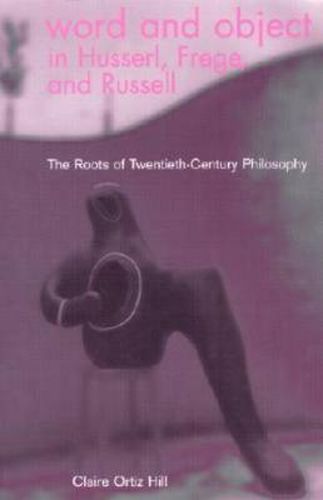Readings Newsletter
Become a Readings Member to make your shopping experience even easier.
Sign in or sign up for free!
You’re not far away from qualifying for FREE standard shipping within Australia
You’ve qualified for FREE standard shipping within Australia
The cart is loading…






In search of the origins of some of the most fundamental philosophical problems that have beset philosophers in English-speaking countries in the 20th-century, Claire Ortiz Hill hypothesizes that philosophers are treating symptoms of philosophical ills whose cause lie buried in history. Substantial linguistic hurdles now block access to Gottlob Frege’s thought and so too the nature of Bertrand Russell’s work to remedy the problems he encountered in it. Misleading translations of key concepts like intension, content, presentation, idea, meaning, concept etc, have severed analytic philosophy from its roots. In this text, Hill argues that once linguistic and historical barriers are removed, Edmund Husserl’s critical study of Frege’s logic in his 1891 Philosophy of Arithmetic provides important insights into issues in modern philosophy. Hill supports her conclusions with an analysis of Frege’s. Husserl’s and Russell’s works, including Principia Mathematica , and with linguistic analyses of the principal concepts of analytic philosophy. She tries to re-establish the links that existed between English and continental thought at the turn of the century to show Husserl’s expertise as a philosopher of mathematics and logic who counted Cantor, Hilbert and Zermelo among his friends.
$9.00 standard shipping within Australia
FREE standard shipping within Australia for orders over $100.00
Express & International shipping calculated at checkout
In search of the origins of some of the most fundamental philosophical problems that have beset philosophers in English-speaking countries in the 20th-century, Claire Ortiz Hill hypothesizes that philosophers are treating symptoms of philosophical ills whose cause lie buried in history. Substantial linguistic hurdles now block access to Gottlob Frege’s thought and so too the nature of Bertrand Russell’s work to remedy the problems he encountered in it. Misleading translations of key concepts like intension, content, presentation, idea, meaning, concept etc, have severed analytic philosophy from its roots. In this text, Hill argues that once linguistic and historical barriers are removed, Edmund Husserl’s critical study of Frege’s logic in his 1891 Philosophy of Arithmetic provides important insights into issues in modern philosophy. Hill supports her conclusions with an analysis of Frege’s. Husserl’s and Russell’s works, including Principia Mathematica , and with linguistic analyses of the principal concepts of analytic philosophy. She tries to re-establish the links that existed between English and continental thought at the turn of the century to show Husserl’s expertise as a philosopher of mathematics and logic who counted Cantor, Hilbert and Zermelo among his friends.